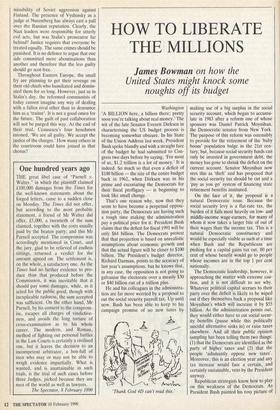One hundred years ago
THE great libel case of "Parnell v. Walter," in which the plaintiff claimed £100,000 damages from the Times for the well-known statements about the forged letters, came to a sudden close on Monday. The Times did not offer, but according to the most probable statement, a friend of Mr Walter did offer, £5,000, a twentieth of the sum claimed, together with the costs usually paid by the beaten party; and this Mr Parnell accepted. The compromise was accordingly mentioned in Court, and the jury, glad to be relieved of endless sittings, returned a verdict for the amount agreed on. The settlement is, on the whole, a satisfactory one. As the Times had no further evidence to pro- duce than that produced before the Commission, it was inevitable that it should pay some damages, while, as it acted for the public good, though with inexplicable rashness, the sum accepted was sufficient. On the other hand, Mr Parnell, by his consent to the comprom- ise, escapes all charges of vindictive- ness, and avoids the long torture of cross-examination as to his whole career. The modern, and Roman, method of fighting out personal battles in the Law Courts is certainly a civilised one, but it leaves the decision to an incompetent arbitrator, a box-full of men who may or may not be able to weigh evidence impartially. What is wanted, and is unattainable in such trials, is the trial of such cases before three Judges, picked because they are men of the world as well as lawyers.
The Spectator, 8 February 1890


















































 Previous page
Previous page